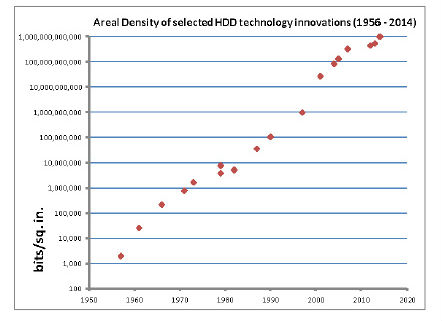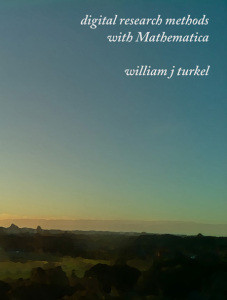As we spend lots of money on Black Friday there are a few stories looking a the start of internet e-commerce. There is New York Times article from 1994 Attention Shoppers: Internet is Open that suggests NetMarket was the first. A short video You’ll Never Guess What The First Thing Ever Sold On The Internet Was mentions some pot sales organized on the Arpanet.
NSA to shut down bulk phone surveillance program by Sunday
NSA to shut down bulk phone surveillance program by Sunday. A first step.
The Storage Engine from the Computer History Museum
The Storage Engine is a timeline of computer storage from the Computer History Museum. It is easy to navigate and goes back to Pliny and various analogue storage systems. The items are well documented with multiple images, contemporary documents, and current information. Lots of good historical information here.
The Computer History Museum seems to be doing a number of these technology history sites including one called The Silicon Engine with a timeline of semiconductors in computers.
Canadian video game industry catching up to TV & film production
The CBC has a story on how the Canadian video game industry catching up to TV & film production. The story is based on the annual report of the Entertainment Software Association of Canada (ESAC). You can download the PDF from here. Some of the interesting facts from the report include:
- The video game industry employs 20,400 people (up 24% from 2013) with an average salary of $71,300.
- The currecnt skills most lacking in the talent pool include programming, artist and animation, data analysis, and game design.
- Quebec has 29.4% of the companies or 10,850 full-time employees (53% of all direct employment).
- Revenues from console games are down and mobile games are up.
ReFig 2015
I’ve just left the ReFig 2015 workshop. I kept my workshop notes at Re-Figuring Innovation in Games (ReFig) 2015. Important research with an awesome team that I hope to follow. Last night we were treated to a conversation with Anita Sarkeesian that was fascinating. She has had more of an effect and probably done more good research in preparing the videos than most of the rest of us. There are lessons to be learned about how to address a broader audience, how to have an impact, and how to stay focused on social justice.
Digital Humanties Conference 2015 on YouTube
The folks at the University of Western Sydney have now put up the keynote talks from DH 2015. See Digital Humanties Conference 2015 – YouTube.
I particularly recommend the two Keynotes by Jeffrey Schnapp and Genevieve Bell. You can see my conference notes here.
I was part of the panel on Building Communities and Networks in the Humanities.
Literary Analysis and the Wolfram Language
Lately I’ve been trying Wolfram Mathematica more an more for analytics. I was introduced to Mathematica by Bill Turkel and Ian Graham who have done some impressive stuff with it. Bill Turkel has now created a open access, open content, and open source textbook Digital Research Methods with Mathematica. The text is a Mathematica notebook itself so, if you have Mathematica you can actually use the text to do analytics on the spot.
Wolfram has also posted an interesting blog entry on Literary Analysis and the Wolfram Language: Jumping Down a Reading Rabbit Hole. They show how you can generate word clouds and sentiment analysis graphs easily.
While I am still learning Mathematica, some of the features that make it attractive include:
- It uses a “literate programming” model where you write notebooks meant to be read by humans with embedded code rather than writing code with awkward comments embedded.
- It has a lot of convenient Web, Language, and Visualization functions that let you do things we want to do in the digital humanities.
- You can call on Wolfram Alpha in a notebook to get real world knowledge like capital cities or maps or language information.
Replaying Japan 2016
The Call for Papers for Replaying Japan 2016 is up. See CFP here.
The theme of Replaying Japan 2016 is “From Pac-Man to the present: Japanese Games between the local and global”
The conference will be held for the first time in Europe at Leipzig University from August 15 to 17, 2016. This is right before GAMESCOM in Cologne, Germany.
Join us!
philosophi.ca : Digital Humanities Concepts 2015

TU Darmstadt MA LLC Structure
Just left a most delightful conference on Key ideas and concepts of Digital Humanities in Darmstadt, Germany. My conference notes are on philosophi.ca : Digital Humanities Concepts 2015. The conference brought together an extraordinary set of speakers who were influential in the field when I entered it. Susan Hockey, Michael Sperberg-McQueen, Nancy Ide, George Landow, Wilhelm Ott and the list goes on. I would be hard pressed to imagine a conference I have been at better able to reflect on the history and ideas of humanities computing. The organizers Andrea Rapp, Michael Sperberg-McQueen, Sabine Bartsch and Michael Bender deserve much more praise than I was able to lavish on them.
Among all the great papers I will mention:
- Michael Sperberg-McQueen gave a very smart and well argued paper on descriptive markup arguing against its dismissal as enforcing hierarchies.
- Marco Passarotti talked about the Index Thomisticus (which he directs) and the Busa Archive. He brought some documents including some Gantt charts and early letters. I am definitely going to visit him and the archive in Milan.
- Fotis Jannidis gave a great paper on topic modelling and its temptations. He has very interesting stuff to say about how the method has been adopted by humanists.
- Julia Flanders gave a paper on “Looking for Gender in the History of DH” that when published will, I predict, become mandatory reading. She gives us a way forward after what happened at DH 2015. It was a truly wise and humble talk that could go a long way to providing an inclusive way forward.
- Nancy Ide gave a great overview of the separate trajectories taken by DH and Corpus Linguistics.
- Peter Robinson gave a call for open editions and walked us through what that might mean.
Given the speakers, there was a lot of reflection on the history of humanities computing and disciplinarity, though enframed by a German context. TU Darmstadt has an MA in Linguistic and Literary Computing (see image of the structure of the degree above) and is now developing an undergrad degree.
On Starving the Humanities in Japan: 4Humanities’ View
Over the last weeks, with lots of help from others, I wrote a position on what is happening in Japan, On Starving the Humanities and Social Sciences of Students and Funding in Japan: 4Humanities’ View. The blog entry presents a 4Humanities view on what appears to be a troubling pattern of de-funding the humanities, arts and social sciences under the mistaken view that they do not contribute to economic growth. The evidence, at least is Canada, is that humanities students do get jobs and do do better than those without university education. They may not do better than those getting a degree in petroleum engineering, but we surely don’t need only engineers. (See my entry on Ignoring the Liberal Arts.)
More worrisome than what is happening in Japan is the politicization of higher-education in North Carolina both at the board level and now with the appointment of a new President of the UNC system, Margaret Spelling. Johann Neem has a disturbing essay in Inside Higher Ed on Margaret Spelling’s Vision for Higher Education. Even more interesting is Neem’s essay on what academics could do if universities become vocational schools, Taking It to the Streets: Preparing for an Academy in Exile.

